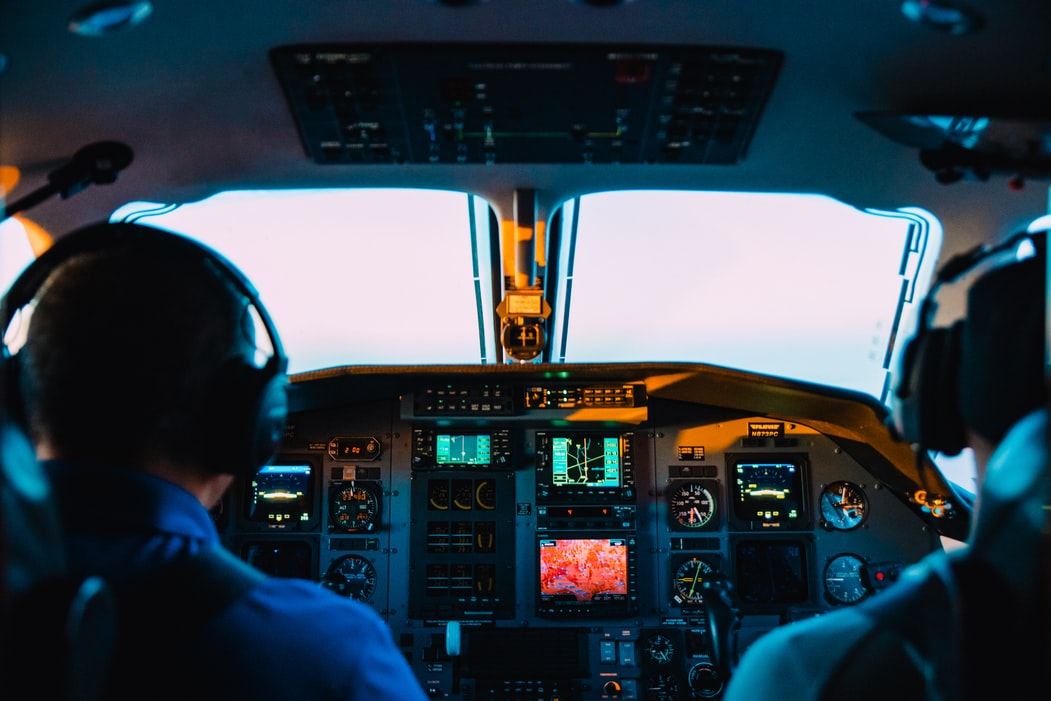From Pockets to Cockpits: The Cultural Context of Digital Flight Assistants
This research on the cultural context of digital flight assistants is lead by Dr Fabio Mattioli, School of Social and Political Sciences, Faculty of Arts, with funding from the Centre for AI and Digital Ethics 2020 Seed funding.

'From Pockets to Cockpits: The Cultural Context of Digital Flight Assistants' was funded as part of the CAIDE 2020 Seed Funding round.
Project overview
Contemporary planes are heavily automated and increasingly able to handle complex flying functions including take-offs and landing procedures. The communication between pilots and planes’ automated systems, however, remains mediated by a myriad of small screens, levers and switches which encourage pilots to disengage when not actively flying. These interfaces amplify the cognitive dissonance between humans and the planes’ autonomous systems, making it challenging to regain awareness and take control during emergencies that occur after periods of inactivity.
To address such cognitive issues, AvioTech companies are studying a new generation of digital flight assistants. Taking the principle of personal digital assistants such as Alexa or Siri to keep pilots engaged during non-active phases of the flight, these AI-powered technologies should simplify humans’ access to planes’ automated system and centralize the decision-making process.
While the technology is promising, how pilots will respond remains unpredictable. Past research has shown that humans are highly influenced by superficial aspects of AI agents, such as their apparent gender, humanness, politeness, and personality, and that users from different technical or cultural backgrounds can have widely varying mental models of how AI systems work. How “invasive” of an assistant are pilots willing to tolerate? Will the gender of digital flight assistants affect pilots’ trust in the system, given the masculine structure of aviation chains of command? Are digital flight assistants going to exacerbate pilots’ anxieties about worsening working conditions—or encourage precarious contracts and speculative endeavors by airlines?
These questions highlight the larger cultural, political, and economic challenges that are introduced by digital flight assistants and other AI-powered innovations in the aviation world. From Pockets to Cockpits identifies in pilots’ attitudes towards personal digital assistants a key opportunity to develop a preliminary dataset on the cultural anxieties generated by AI in aviation.
- Dr Fabio Mattioli

School of Social and Political Sciences
Faculty of ArtsUniversity of Melbourne
- Fraser Allison

Research Fellow - The Future Cemetery
Faculty of Engineering and ITUniversity of Melbourne
- Dr Harriette Richards

Honorary (Fellow), School of Culture and Communication
Faculty of Arts
University of Melbourne
- Dr Johanne Trippas

Doreen Thomas Postdoctoral Fellow
Faculty of Engineering and IT
University of Melbourne
- Sarah Gosper

PhD Candidate
Faculty of Arts
University of Melbourne
- Cynthia Sear

PhD candidate
Faculty of Arts
University of Melbourne
- Sara Khorasani

PhD Candidate
Faculty of Engineering and IT
University of Melbourne